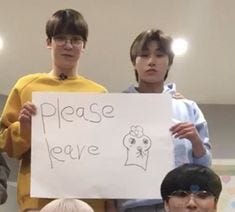One day, I was working from home, sitting cross-legged on the couch while the sun seeped through the blinds and a mug of coffee warmed my hands. I was supposed to be working (I am not a fan of that). But instead, I was listening to an episode of Glennon Doyle’s podcast. She was talking with her partner, soccer player Abby Wambach about her fear of text messages and the expectation to reply to friends.
She explained how much she hated sending and receiving messages, describing them as feeling like somebody was ‘prodding’ her for attention, and it made her bristle. She wholeheartedly refuses to reply to a back-and-forth exchange of messages.
This is a woman who has built an online community of over 1M followers through her books, podcasts, and philanthropic work. She has a global community that hangs on her every word, reads every book she’s ever written and pays to hear her speak at events.
She is a wise, kind, and warm soul on the podcast, and her book Untamed was pivotal in my unmasking journey of learning how to be myself. How did it come to be that this woman of huge success with a sprawling network of people was so fearful of conversations with loved ones?
I listened closer. Surprisingly, it was something that I resonated with deeply.
Glennon went on to say that she’s happy to meet up with friends and loves spending time with people, she just doesn’t want to waste time with the tennis match of conversation over text. Then she said something that stood out to me. It went something like this.
“I love people so much. Humans fascinate me. But can’t I love them from afar, from the comfort of my own home?”
Afterward, I sat down with my journal and started to explore my relationship with humans as a newly diagnosed Neurodivergent Woman.
I’ve never had any trouble making friends. I was a shy starter in Primary school and struggled to make friends for my first year but after that, Iq quickly learned how to fit in. I was never bullied, or made to feel bad about myself. In High school I could fit in with various groups of people, blending in like a chameleon. I was popular and well-liked. I’ve learned that this is often referred to as ‘mirroring’ - how to match people’s energies to fit in.
But I have always been someone who values my own space. As someone who grew up in a household of eight other people, I was rarely ever alone. I craved solitude, feeling constantly overwhelmed and overstimulated by the noise and conversation of my busy childhood home.
My mum loves to tell the story of when I was younger - around eight years old. I would take my pocket money and go to the local greasy spoon café. My parents would send my older brother and cousin to watch over me, but I insisted that they sit at a separate table. I wanted to be alone to enjoy my sausage roll. What’s the big deal?
When I was a teen, my mum pulled me aside and asked if I had a problem with a family member. I would see them on the walk to school every morning and they’d always stop to offer me a lift. I always refused. When she explained that they had taken it personally, I felt bemused. I explained that I just wanted to walk alone and enjoy the peace of a solitary walk before an overstimulating school day.
When I got diagnosed with ADHD and referred for an Autism assessment in my thirties, these experiences made more sense. The world often felt overwhelming and loud. Being alone was my safe space. No expectations, no demands, no conversation. Just me, my books, and my journal.
Being Neurodivergent makes me endlessly curious and creative. The human experience fascinates me. I’m also deeply empathetic, which means that I can read other people’s emotions and be sensitive to their shifts in energy. I love people. I care deeply and I’m emotionally invested in the world around me. In a way, I understand people better than they understand themselves sometimes. Within five minutes of meeting, I monitored their body language, the way that they talked, and their tone of voice. My finely tuned intuition tells me all that I need to know for me to connect with them.
So if I love people, but I also love being alone, where does this leave me in my adult friendships?
Since becoming a mum, my priorities, needs, and expectations in friendships have changed. I’ve lost friends because I was no longer available for 9 pm dinners, and that’s okay. I’ve never really felt sad about it, even when I lost friends of over 10 years. Other friends cried and stewed over it for months when our friendship group shrunk in size and I just kind of never really thought about it.
Here are a few reasons why I fear that I’m a bad friend;
I have something called object permanence with ADHD- If something isn’t visible to me, I forget that it exists. This goes for people too. I have two siblings who live far away and I quite literally forget they exist until they message, put something in the group chat, or come home for a visit.
I’m never the friend who messages first - Why? Because of the above (I’ve forgotten that you exist in a sense) but I genuinely don’t feel the need. I get a pit when a friend messages and I realise that she’s always the one reaching out first. Does she resent me for it?
I’m busy - I know that everyone is and I respect that. But I’m a mum of two who writes part-time and also has a corporate job. When I’m with the kids I’m busy being mum, doing dishes, and wiping bums. When I’m busy working at home I’m enjoying not being mum, sipping my coffee in peace as I work. When I‘m busy writing, I’m in my flow.
I have a sensitive nervous system - I get burned out pretty easily. Between all of the above and trying to give myself even the most basic needs, I’m exhausted by 8 pm. The last thing I want to do is meet people at a bar, go for a late dinner, or reply to messages.
I network online - I work on screens a lot. I have built a wonderful online community that I enjoy conversing with, but it means I’m online and looking at screens a lot. The last thing I want to do is sit and stare at my phone while we throw messages back and forth. Screen time drains my already limited energy and having an online community feels like a safe balance of ‘loving people from afar.’
I’m from a close family - I have six siblings and live on the road next to my parents. I’m with my family most days, and my siblings are my best friends. Maybe that’s why I don’t feel the need to reach wider for a support network. If I didn’t have any friends it wouldn’t matter, because I’d have my siblings and I feel incredibly fortunate for that.
I’m better in person - It’s hard for me to read social cues and tone over text and equally, it’s difficult for me to display effective communication. I’m much better at understanding friends or expressing myself in person.
I enjoy real-life interactions more - I genuinely just enjoy being in people’s presence when my social battery is available for it. It’s hard for me to feel connected to people over a screen. In person, you have my full attention. Over text, I’m replying to five other messages and trying to stop my three-year-old from eating a snail.
It’s hard for me to find people with similar interests - The reason why I love being online is that it’s much easier for me to unmask, be myself, and find people who are similar to me in a wider network. I’ve always felt so different from the people I grew up with, and when you’ve spent your life masking, it’s hard to unmask around the people who are comfortable with that version of you. Finding people who I can excitedly talk about Taylor Swift, writing, or my latest Fantasy novel with without the fear of being rejected, is important to me feeling safe enough to open up.
I keep seeing articles pop up about the loneliness epidemic and how real-life interactions are so important to our mental health. I never feel lonely, and will never tire of my own company. But I do agree that IRL connections are important, and make me feel connected to the world I’m so curious about. I know I’m lucky to have a husband, family and friends around me who want to be a part of my experience.
I don’t think I’m a bad friend (or an asshole) upon reflection. I’m loyal AF, care deeply and I’m supportive of the people around me. Maybe I just have a different way of showing it, and that’s okay. Maybe it’s about managing expectations with my people so that they know what they can expect in a friendship with me, and if I can’t give them what they need (constant text conversations) then I’m not the friend for them.
Maybe I just need to let them know that I don’t feel it necessary to check in between IRL coffees - unless one of us is struggling. Perhaps our friendship will be just as strong if we just meet once a month and give each other our full attention, or do something fun.
Maybe I’m just here, prioritising my own needs, encouraging you to do the same, and loving you deeply from afar. Until we meet again.
Soph xo








This made me feel so seen and the first time I’ve read a very similar experience. Friendship maintenance when everyone has moved around is so hard for me and I hate talking on the phone or texting but could talk nonstop in-person. Thank you for writing this!
This is very much me! I love to be alone, but also love people- its just hard to connect when most people aren’t the same way. Im having a fun time at gatherings even though I am quiet, but people take that for ‘not being happy’. And the texting back…. It makes me overwhelmed! I know it comes off as rude, but why should people expect an instant reply 24/7?